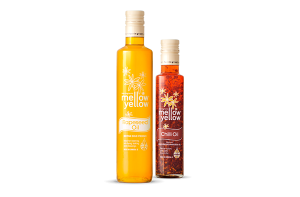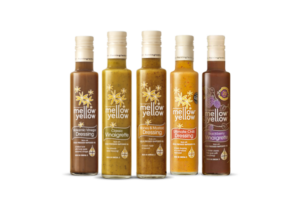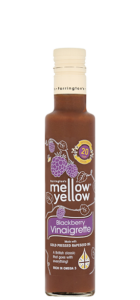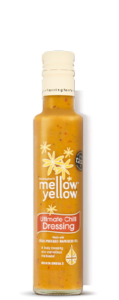Winter jobs are well and truly underway, as always the list is long and never seems to be quite completed. This year’s priorities include a little hedge planting; some hedge cutting, as every hedge planted does in time need managing; digging out ditches to reduce wet muddy soils in the fields; and, the main project this December is to clean out a pond.
We have several ponds around the farm. Over the years leaf litter and silt build up in ponds. By removing this, it gives the pond a new lease of life, creating a freshwater environment for everything from bugs, newts, and dragonflies, to drinking holes for passing birds and mammals. When cleaning ponds, it is important to create different depths of water, creating different habitats in this mini ecosystem. It is also ideal to have some of the banks steep, providing shelter for nesting birds from predators and other areas of the bank, leading gently to the water’s edge, so mammals can access a drink.
As the workload on the farm slows down for winter, farmers can often be found getting together at meetings to exchange ideas. This is an important part of any industry, although with agriculture most businesses are not in direct competition with each other, which can allow for honest probing conversations, where the participants can really gain from each other’s experiences.
This year I have been looking at personal development and in particular, how I can improve my management skills. Farms tend to be isolated businesses, where the employer and his or her workforce may be the same person or a team of say two or three people. HR, payroll, marketing or IT departments do not generally exist on the average farm. As such, farmers, or indeed other small businesses, do not easily have access to develop their skills in how to manage people in their businesses. Such skills are not something you can readily read about in a book or learn at college or university, they are honed over years of experience, both learning from others, as well as making plenty of mistakes yourself.
I have realised over the years, and especially in the last few months, that successful businesses employee great people, give them clear roles and goals and then give them the tools and encouragement to get on with the job. I believe that a manager’s role is to make work rewarding for their employees. At a recent team meeting I even suggested that work can be fun, however judging by the look on their faces may be I was being a little too alternative as they wondered what I was going to say next.
Farming Diary
From LEAF Demonstration Farmer Duncan Farrington
New Opportunities.
I started writing my Farming Diary for the recently launched, Village Bystander back in 2006 and have greatly enjoyed sharing some anecdotes with you, about what goes on here at Bottom Farm, from month to month. Admittedly most of my reports are about mundane things that happen throughout the farming year, often revolving around the weather, with all the issues that may bring. However, I have been presently surprised when meeting several Bystander readers, hearing how many of you have enjoyed reading my little column over the last seven years. It is now time to move into new opportunities.
Back in 2006, we were a pretty standard family arable farm for the area. Times were hard in agriculture financially, with many farmers looking at supplementing their incomes from diversified sources. I was no different and had just finished my first year of producing our Farrington’s Mellow Yellow cold pressed rapeseed oil – the first farmer in the UK to produce such a product from field to bottle. Back then I sold around 6,500 bottles a year. Now we can produce that number of bottles every couple of days; a success that far exceeded my original ambitions and expectations. So rather than being a farmer with a little extra income, I am more an oil producer that tries to fit farming around the day job. None of it would have been possible without the support of my wife Eli, family, or indeed the fantastic growing team of people now employed to help meet our customers’ demands.
I will still be writing a farming diary, which you can read on our website. Additionally, I have been asked to write it for the Northamptonshire Evening Telegraph as an exclusive column. I am very excited for the opportunity, but this is mixed with a little sadness at saying goodbye to the Bystander.
May I take this opportunity to firstly thank Katherine for hosting the dairy over the years, I am sure she will fill the column with someone far more entertaining than myself. I wish her and The Village Bystander all the best in the future. Secondly, thank-you to all of you that have read my ramblings and for all the comments I have received. So, for now, it is Goodbye from me.
However, time marches on and I am sad to say this will be my last column for the Bystanders
The autumn planting campaign has been a great success, with the majority of crops planted in ideal conditions and growing well, with the Winter routine almost upon us. I just have one field left to plant with wheat, which I have delayed to allow the weeds to grow first. These can then be easily killed off rather than trying to control them once a crop is established. With the recent rains over the last few weeks, if conditions don’t allow for autumn planting, the field will instead be planted with a spring crop once the soil dries out.
Once the main work is completed for another year on an arable farm, the machinery is cleaned down and given a pre-winter service before putting away for another year. We then sit down and take stock of how the previous year has gone. This last twelve months has not been fun in our case, thanks to the continued unfavourable weather throughout the crop year. The result has been that income is down 30%, which presents challenges in any business. However, the underlying business is sound and we have a good relationship with our bank manager who will stand by us for the next twelve months. On a brighter note, looking ahead, the prospects for next year are already looking much better and will hopefully get us back on course by December 2014.
While the farm side of the business may not have had a good year, I am pleased to report that Farrington Oils continues to do well. We have had several changes in staff over the last few months, which have given us a great opportunity to get some fantastic new blood into the company and build a very strong team. This was recently rewarded as we all attended the Northamptonshire Food and Drink Awards at the Derngate in Northampton. We were delighted to be nominated for three different awards and came away with two. A fantastic result made all the more enjoyable by sharing it with the team – who actually make it all happen. Such events are also a wonderful opportunity to catch up with and meet other county businesses to share and exchange ideas, as well as me being able to show off my moves on the dance floor at the end of the evening. Thank-you to all who organise and host the awards each year and to all of you who nominated Farrington Oils, it means a huge amount to us all at Bottom Farm.
What a wonderful summer it has been, as September draws to a close we continue to enjoy lovely weather as the days shorten and the nights start drawing in we reach the final push. The last eighteen months in arable farming have not been pleasant from a weather perspective. The resulting financial implications will endure for a further year, meaning I am having to look hard at my cash-flow figures and having regular conversations with the bank manager. However the farming calendar revolves and we start looking towards next year’s crops, so far it has been perfect conditions to start the new farming year.
All of our rapeseed was planted in warm moist soils, enabling this most delicate of plants to get off to the best possible start during the crucial first few weeks of its life. Next we turn our attention to planting the wheat crop. Again the conditions are perfect for the crop to grow, with warm and moist soils. If it’s perfect for crops to grow, the same rings true for the weeds, which (you may be surprised to hear me say this) is a good thing. Rather than rushing ahead to plant our wheat, I am currently nurturing the weeds to grow. By encouraging as many weeds as possible to grow now, we can easily kill them off with a mixture of cultural control from raking the soil, backed up with spraying them off with a herbicide. The more we do now, the less competition in the following wheat crop. If we get it right, fantastic. If we get it wrong and the weather suddenly changes to cold, wet rain, we have a repeat of last year, where we couldn’t get the crop established at all. I am nervously optimistic that we can’t have two disastrous years in a row and all will be good this time round. With wheat planting starting, some long days and nights keeping the drill going, should see the end of the autumn planting with great success.
Farming is becoming very much a topic that people are interested in learning more about. I was delighted to see the recent BBC series ‘Harvest’ in which three different farming systems were followed throughout the year observing what it takes to grow our food, cumulating in the all important harvest. It was refreshing to see agriculture portrayed as a modern, caring and efficient industry, growing fantastic quality food, using the latest techniques backed up by knowledgeable hard working people. Of course modern agriculture has by its very nature to be sustainable, both economically and environmentally, a message I have been talking to people about for years and something that LEAF farmers can and do deliver. However for the BBC to portray agriculture in this way, unapologetically, without the hair-shirt, unrealistic ideals that agriculture and food production can be achieved in some romantic fashion, was a great breath of fresh air for everyone. By show casing the very best of our industry, is not only a great advert for UK Agriculture, but also gives the consumer a refreshing outlook of what actually happens on our farms. Congratulations to all involved; the farmers and their staff, and especially the BBC for presenting the programs in this way – long overdue I say.
In the oil side of the business, it has also been a busy few months. We have had a few staff issues but, I am pleased to report, these have been successfully sorted. I have again got a fantastic team, which is the most important asset any company can have. We are all looking forward to getting togged up for the annual Calsberg UK Northamptonshire Food & Drink Awards on 17th October, in which we are finalists. Whether we come home victorious or not, I am sure everyone will enjoy a well deserved great evening together celebrating all their hard work.
Quick one this month as I take a few minutes to sit down while we are getting the combine ready for long hours on another field. I am pleased to report that although as expected the crop yields are pretty disastrous on the whole, the weather over the last few weeks has at last been very much on our side so we can get on with the job in hand.
Normally rapeseed harvest would start around 27th July, with wheat following around the end of the first week in August. This year however due to crops maturing at different rates all over the place, we started harvest on some wheat on 3rd August, before moving to some rapeseed on 13th August, on to spring Barley on 19th August, back to finish rapeseed off on 21st August, before moving back into wheat later around 23rd August. Yes it has been challenging trying to decide which best to do first. Every time you change from one crop to another, it takes several hours resetting the combine for the job in hand.
The wheat and rapeseed yields have been very low, with rapeseed being 30 to 50% down on what we would hope for, however the wheat has so far been good quality, so although it won’t make many loaves of bread, at least they will good ones. The spring barley has been very pleasing with Father saying it was a pleasure to harvest. The yield was good and hopefully the quality will be also.
As well as harvest, I have been helping the guys bottle oil during the day as we are currently short staffed, and the summer sales continue to go well. It has been a while since I have helped in the bottling room, and although I would rather the timing being a bit different, it has been good to get back in there helping everyone along. We have a good team and it is important to help them when they need it.
That’s it for now, I am being called to go and help get on to the next field, so better show that I am not just hiding in the office drinking tea.
We are thrilled to receive a Gold Star for Garlic Mayonnaise in the world’s largest food awards scheme. The Great Taste Award for our Garlic Mayonnaise is a huge accolade and over the years our cold pressed rapeseed oil, the full range of dressings and our classic mayonnaise have all received this sought-after marque of approval.
We are delighted to announce that both our new Chilli Oil and Garlic Mayonnaise have been shortlisted as finalists in the ‘New Local Product of the Year’ category in the Carlsberg UK Northamptonshire Food Awards & Drink Awards 2013.
The prestigious awards are held every year and Farrington’s Mellow Yellow has won in previous years. The Chilli Oil and Garlic Mayonnaise past the first round of judging to be shortlisted and will now go forward to the final… fingers crossed!
As a rule of thumb, we usually start harvesting around 27th July. However in reality along with good farming tradition, it comes down to friendly brinkmanship, where neighbours pretend to be calm and patient, The Calm Before the Storm waiting until the crops are in perfect condition to harvest, before someone breaks ranks and you hear the sound of a combine entering a field somewhere over the horizon. All thoughts of planned calmness are forgotten immediately as you run to get your combine out of the shed in an attempt not to be seen as being behind the neighbours. It’s a completely futile competition as in reality the crops will be ready in their own time, and this initial excitement to get started normally finishes a few metres into the field with the realisation that the crop is not ready, and we have to go back to patiently wait a few more days.,
This year, however, things will be a little different. Harvest is not likely to start for us until around the second week in August. I know we will be incredibly twitchy by then, especially if we hear a nearby combine going somewhere. Due to the long winter and late cold spring, everything is simply behind by around three to four weeks. Once we do start we will not know which way to turn first as no doubt the rapeseed, winter wheat and spring barley will all be ready together. I can certainly see a few weeks of excited panic and long hours. It will be a case of “Don’t panic Mr Mannering.”
Preparation for harvest continues. I have taken on our harvest student, who this year comes all the way from the Scilly Isles. He applied for the role following a visit by Duchy College in Cornwall to the farm learning about what we get up to here. Jonathan is from a family farm on St Marys. Whilst their farm is only 10% the size of our farm in Northamptonshire, it very much promotes the adage of “It’s not the size that matters, but what you do with it that counts”. On Jonathan’s family farm of around 70 acres which is managed by his Grandfather, Father and Mother; they have beef cattle, grow several different types of foder crops to feed the cattle, grow new potatoes, grow narcissus, have three campsites, as well as his Father managing the island’s ferry terminal. It certainly sounds very different to how we do things here, which we can both learn from each other about the great diversity in British agriculture.
Currently, we are in the final stages of preparing all the machinery and grain store for harvest. The yard has been swept. Grain trailers have had a full clean down and service, with all the wheel bearings and brakes serviced. The combine is ready to go, with no obvious signs of mice damage at the moment – fingers crossed. The tractors have been washed and serviced and we are nearly there. We are going around some of the fields mowing the wildlife strips to encourage the right types of grasses and wildflowers to grow, as well as giving the footpaths and bridleways a cut. Additionally, we are walking through the spring barley in the early mornings before the sun gets too hot to rogue out (pull out by hand) any wild oats and wheat plants that will contaminate the crop which is destined for seed.
Next, it is just that patient waiting game. We are not good at it and no doubt this year there will be plenty of relieved farmers’ wives, once they have got us out from under their feet doing something useful.
Farming Diary
From LEAF Demonstration Farmer Duncan Farrington
We are thrilled to be sponsoring not one, but TWO workshops at the sell-out event CarFest South. This is the second year we have sponsored a workshop, and this year the organiser’s at Carfest asked if we would like to come back and sponsor both the bread making and dressings workshops – and of course we are more than happy to help!
Carfest aims to raise £1.5m for BBC Children in Need and is organised by a great team and supported by BBC Radio 2 DJ Chris Evans. Carfest South is hosted at Laverstoke Farm, owned by Jodie and Clare Scheckter who are passionate about producing great tasting, healthy food. The bread making and dressings workshops are so popular at the events as they get all members of the family involved, kids love it and it’s free to visitors. Farrington’s Mellow Yellow are supplying over 70 litres of cold pressed rapeseed oil for the fun part of making bread and dressings, as well as lots of other goodies from our range of rapeseed oil dressings and mayonnaise.
The volunteers will be working hard at the workshops this year as it is a sell out event and there will be 15,000 visitors to Laverstoke Park every day! We are also donating £1000 to the great fundraising efforts and we wish Carfest South and the team at Laverstoke Park a fantastic event!
For more information about Carfest, the cars, the music, the food… click here.
July is upon us and I am starting to look forward to harvest which normally arrives around 25th of the month, but will be delayed this year thanks to the delayed spring which has slowed everything up. I think the combine will not start rolling on our farm until at least the first week of August, and when we do start I imagine we are going to have a mixed bag both on crop yields and quality. Overall though it is not going to be anything special this year, so I just hope we have some lovely weather to at least get a good farmer’s tan for the efforts.
Normally we grow three crops on the farm in a crop rotation, ensuring the fields and soil experience different crops each year, as part of a healthy and sustainable farming system. These crops would be winter wheat, winter rapeseed, and spring beans. However this year our rotation is somewhat different to the original plan.
Crops this year comprise of winter wheat, spring wheat, winter rapeseed, spring beans, spring barley and fallow land. Looking around the farm at the moment there is certainly a patchwork feel to the fields, some with good crops, especially the spring barley. Barley is something we have not grown since I was a child, so I do not have much actual experience of it, however at the moment the ears are just emerging which gives the crop a lovely soft hairy look as the crop gently sways in the breeze. ‘Ears’ is the term used for the seed heads on the crop which are the last part of the plant to develop, with the next few weeks being a crucial time to have plenty of sunshine allowing the plant to photosynthesize, to grow bold healthy grains of seed. Combine this with the occasional warm rain and it is looking very promising for the barley. The spring wheat looks equally as promising, whereas the winter wheat and rapeseed vary from good to bad, to downright ugly. At their worse there is either no crop in large parts of the fields or in the case of the wheat, the crop is very thin whilst the weeds are very thick. In these areas, we have resorted to the desperate measure of destroying the crop rather than trying to harvest rubbish.
Last month I had a BBC film crew to the farm again. This time they came with the food writer Nigel Slater, as they are currently filming for a new BBC 1 looking at what different foods we produce in Britain. Also, how farmers grow the raw ingredients, how they are made into finished foods we buy and, no doubt, will end up with Nigel creating something delicious in his kitchen. We had a great day looking at the story behind what goes into making our rapeseed oil, I will keep you posted later in the year if we hear of any dates for airing.
I have now found what I hope to be a great harvest student. We had several applicants for prospective tractor drivers over the busy summer period, all from different parts of the country. I have taken on a young lad from the Scilly Isles, from a farming family who is keen to gain experience in different types of farming. I think farming wheat and rapeseed in Northamptonshire is going to be very different from narcissus and new potatoes in the Scillys. Having met and spoken with him, I am sure he will be up to the challenge and I very much look forward to him joining us in the middle of July.
Farming Diary
From LEAF Demonstration Farmer Duncan Farrington

 Oils
Oils Rapeseed Oil
Rapeseed Oil Chili Oil
Chili Oil Dressings
Dressings Blackberry Vinaigrette
Blackberry Vinaigrette Classic Vinaigrette
Classic Vinaigrette Balsamic Dressing
Balsamic Dressing Honey & Mustard
Honey & Mustard Ultimate Chilli Dressing
Ultimate Chilli Dressing